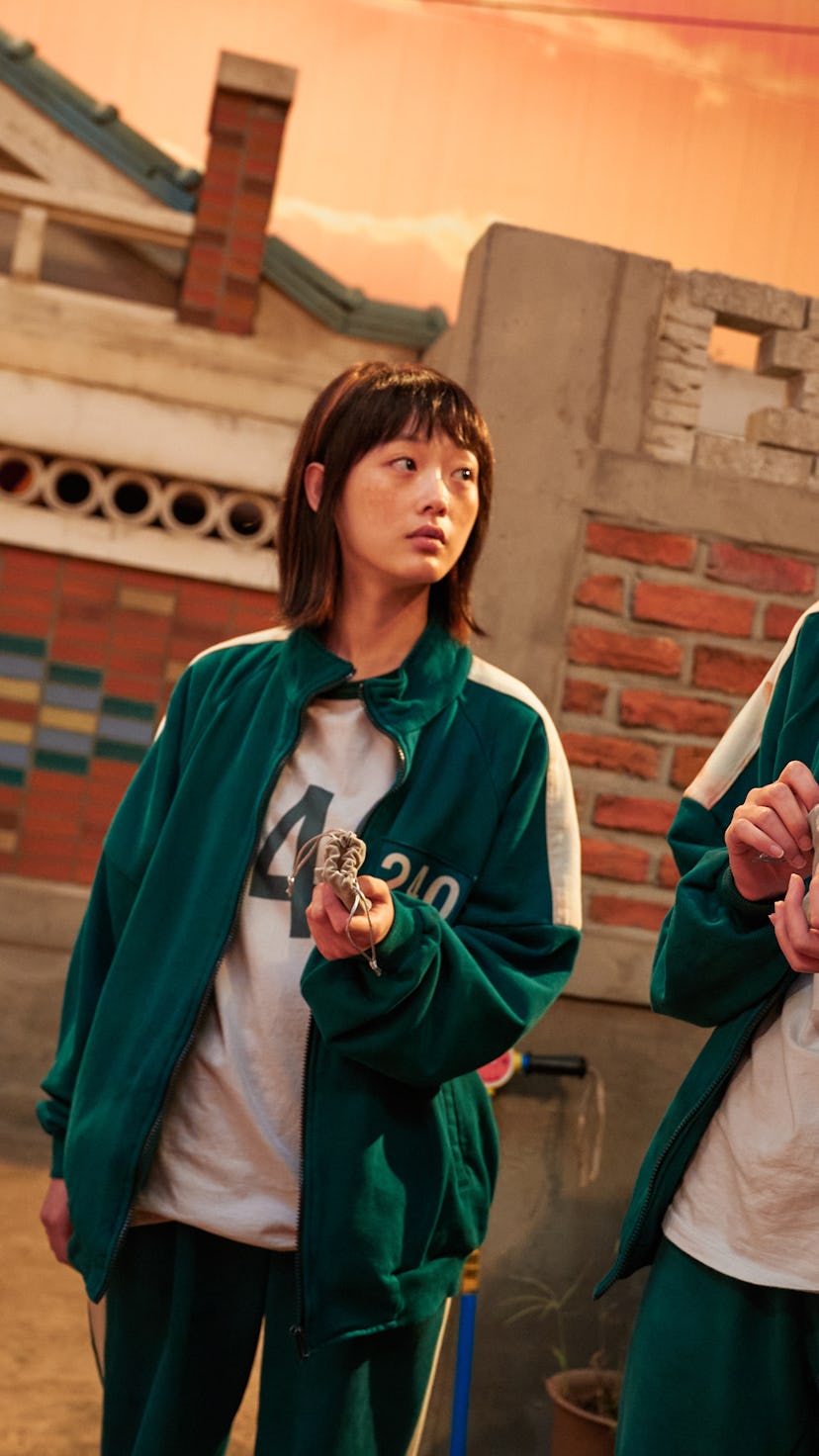TV & Movies
9 Times Netflix's Squid Game English Translations Missed The Real Meaning
Some things were literally lost in translation.

Youngkyu Park/Netflix
Primed to become Netflix’s most viewed show of all time, the Korean thriller Squid Game is so popular it even inspired a slew of TikTok trends. In it, 456 cash-strapped people fight to the death — literally — via playground games for a chance at taking home a lot of cash.
Photo courtesy of Youngkyu Park/Netflix
Though the English subtitles are deemed way more accurate than English Closed Captions [CC], some think the full brilliance of the Hwang Dong-hyuk-directed series didn't quite translate. If you don't speak Korean, here are the nuances you probably missed. Warning: spoilers ahead.
Youngkyu Park/Netflix
Both the game and the episode title translate to “Red Light, Green Light,” a similar contest, but Twitter user @jeeyonshim points out some subtle differences between the two. The Korean version picks up the pace while its Western counterpart’s rhythm is based on who’s “It.”
Youngkyu Park/Netflix
Podcast host and TikTok user Youngmi Mayer also corrects the title’s translation to “The Day That The Mugunghwa Flower Has Blossomed,” adding, “There’s so much metaphor.” Mugunghwa, or the Rose of Sharon, is Korea’s national flower, which only blossoms in the morning. Doesn’t the name make way more sense?
Youngkyu Park/Netflix
In another video about gganbu, which loosely means a neighborhood friend, @youngmimayer states Oh Il-nam’s line to Seong Gi-hun should say, “There is no ownership between me and you” not “we share everything.” She says it’s “literally the point of the episode.”
Youngkyu Park/Netflix
In the same post, she also points out “botched” translations in Han Mi-nyeo’s dialogue, saying even the cussing “gets very sterilized.” When Mi-nyeo asks “mweol bwa?” early on, captions show “go away.” She’s really saying, “What are you looking at?” It’s pricklier, like her.
Youngkyu Park/Netflix
In another scene, Mi-nyeo’s line is translated in CC as “I’m not a genius, but I can work it out.” @Youngmimayer corrects it to “I’m very smart, I just never got a chance to study,” adding that the “poor person that is clever and smart but isn’t wealthy” is a “huge trope” in K-media.
Youngkyu Park/Netflix
Other fans noticed that captions don’t convey how Koreans use honorifics. Throughout the show, Mi-nyeo, whose name means “beautiful girl,” calls just about every man “oppa,” which gets captioned as “babe.” But oppa is mostly a respectful term used by women to mean “older brother.”
Youngkyu Park/Netflix
In fact, when Mi-nyeo first calls gangster Jang Deok-su “oppa,” he responds incredulously. When she retorts, “Mister, how old do I look?” adding that she’s only “19,” she’s actually defending her use of “oppa” to refer to Deok-su as someone older — not the right to call him babe.
Youngkyu Park/Netflix
It’s the same missed detail with Anupam Tripathi’s portrayal of Pakistani foreigner Abdul Ali. In the beginning, Ali calls Cho Sang-woo (Park Hae-so) “사장님” or “sajangnim.” Though captions show “sir,” it literally translates to “boss.” But later on, their relationship changes.
Netflix
Other cultural references are also lost. In Episode 7, despite not finding a partner, Mi-nyeo gets a pass as “the weakest link.” According to NextShark, she’s really described as “kkakdugi,” a dish made from leftovers. It’s a term for kids not picked in teams but still get to play.
Youngkyu Park/Netflix
Similarly, in Episode 8, Sang-woo tells Gi-hun, “[You] always have to get in trouble to know it’s trouble.” A shrewd Twitter user corrects it to, “You always eat it before you can tell whether it’s shit or doenjang,” referring to fermented soybean paste, which is brown.